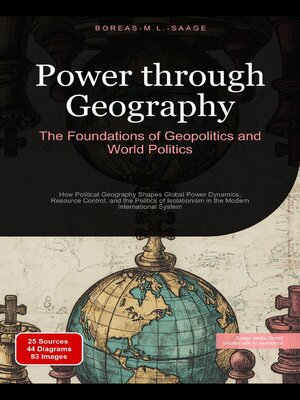Power through Geography
ebook ∣ The Foundations of Geopolitics and World Politics
By Boreas En. M. L. Saage

Sign up to save your library
With an OverDrive account, you can save your favorite libraries for at-a-glance information about availability. Find out more about OverDrive accounts.
Find this title in Libby, the library reading app by OverDrive.



Search for a digital library with this title
Title found at these libraries:
| Library Name | Distance |
|---|---|
| Loading... |
"Power through Geography" offers a comprehensive analysis of how geographical factors fundamentally shape global power dynamics and international relations. This detailed examination explores the intricate relationship between physical space and political influence in the modern world system.
The book methodically unpacks how Political Geography serves as the foundation for understanding complex geopolitical realities, from resource distribution to territorial conflicts. Readers will gain insight into how mountains, rivers, coastlines, and climate patterns create strategic advantages or vulnerabilities that directly impact a nation's position in World Politics.
Divided into five substantive sections, the work begins by establishing the theoretical foundations of Geopolitics, examining how geographical factors function as power resources and tracing the historical evolution of geopolitical thinking. The analysis then expands to explore the spatial dimensions of global politics, including continental power blocs, maritime control, and border regions as flashpoints of tension.
Particularly relevant to contemporary debates, the book dedicates significant attention to the Politics of Isolationism, contrasting isolationist strategies with expansionist approaches and multilateral frameworks. This section provides valuable context for understanding current nationalist movements and their geographical underpinnings.
The critical role of resources in geopolitical calculations receives thorough treatment, with focused analysis of energy security, water politics, and agricultural land as sources of power and conflict. The book concludes with practical recommendations for policymakers, strategists, and analysts seeking to navigate an increasingly complex geopolitical landscape.
Rich with data visualizations including charts on resource distribution, defensive topography, and conflict patterns, this work provides both theoretical depth and empirical evidence to support its analysis of how geography continues to shape the fundamental power structures of our interconnected world.







